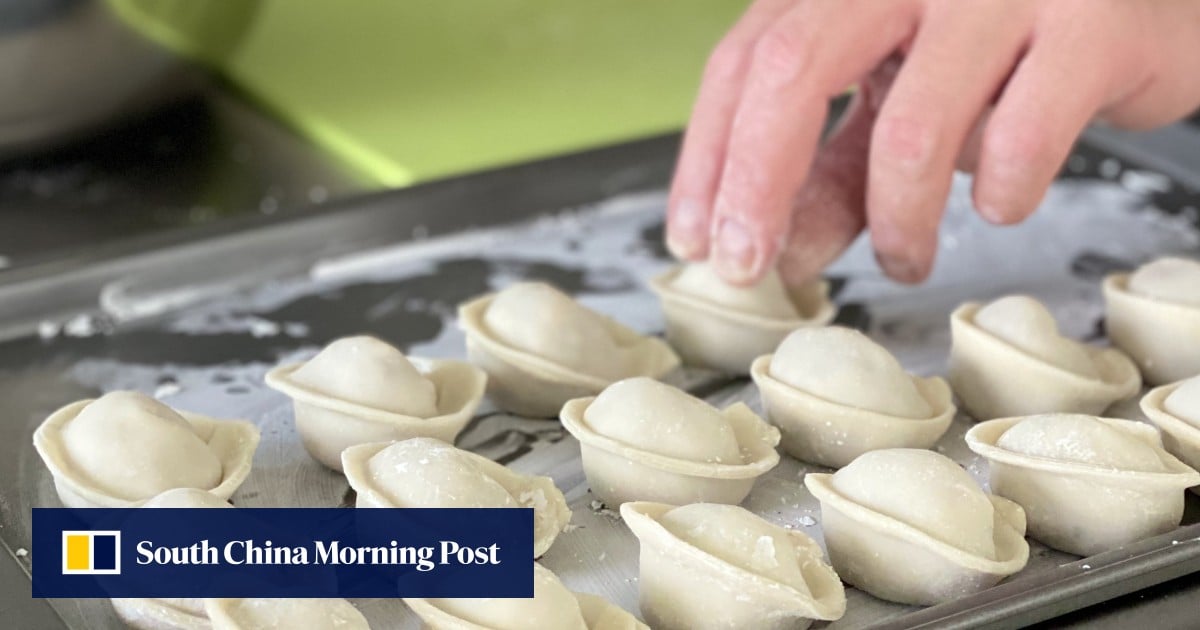Love Sum Dumplings, London
Starting in December 2022, Tang spent six weeks selling them from a food truck outside Battersea station in London.
Jerk chicken chow mein? Jamaican-Chinese chef shares his fusion triumphs
Jerk chicken chow mein? Jamaican-Chinese chef shares his fusion triumphs
That experience convinced Tang and her business partner, David Solomon, to continue developing their dumpling range.
“Dumplings travelled along the Silk Road, from the Far East to the West. And you can see pasta being such a big thing. And then if pasta has taken off, then so should dumplings, right?” says Tang, 28.
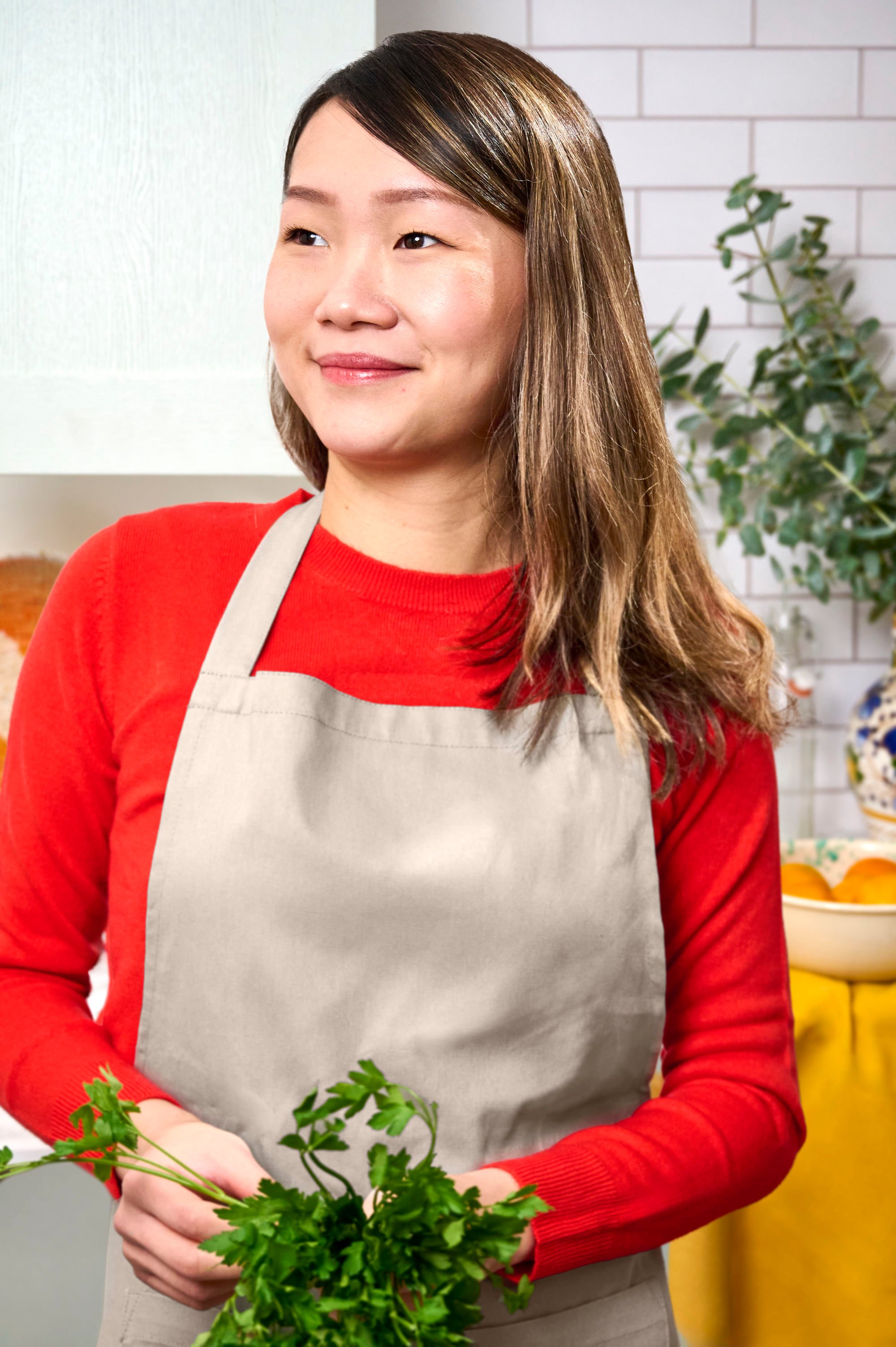
However, because many consumers are not familiar with the Silk Road or the tale Journey to the West, Tang and Solomon rebranded as Love Sum Dumplings at the start of 2024. “It’s more suited to the mass market,” says Tang.
Tang was 13 years old when she moved from Macau to Tonbridge in Kent, southeast of London, for school. It was when she was studying electronic engineering at the University of Warwick in central England that she discovered many of her dorm mates were eating breakfast cereal for dinner, and so she “cooked vigorously” for them and herself.
These days she is focused on recipe development and gets inspiration from her upbringing in Macau, a former Portuguese colony, as well as her travels.
I can see the category for dumplings is growing quite a lot. I see Asian companies spending a lot on marketing
“You think about the flavour profile, what it tasted like at the time you ate it. For example, I knew yak momos don’t necessarily have a lot of turmeric or stuff like that, but because the flavour profile reminds me of those flavours, we combine that,” she explains. Her dumplings are not authentic, she stresses, but pay homage to where the food that inspires their fillings is from.
When she writes recipes, she selects ingredients from specific suppliers, then passes the recipe to her production team, which makes 5-kilogram (11-pound) testing batches.
Once a recipe is approved, they start making 75 kilograms batches of fillings. The key is consistency, although the taste can change when the spices are slightly different or certain fresh vegetables are not in season.
“Some days would be better, some days you just have not very good cauliflower, because it’s not the right time. It happens and obviously we have to adjust,” she says.
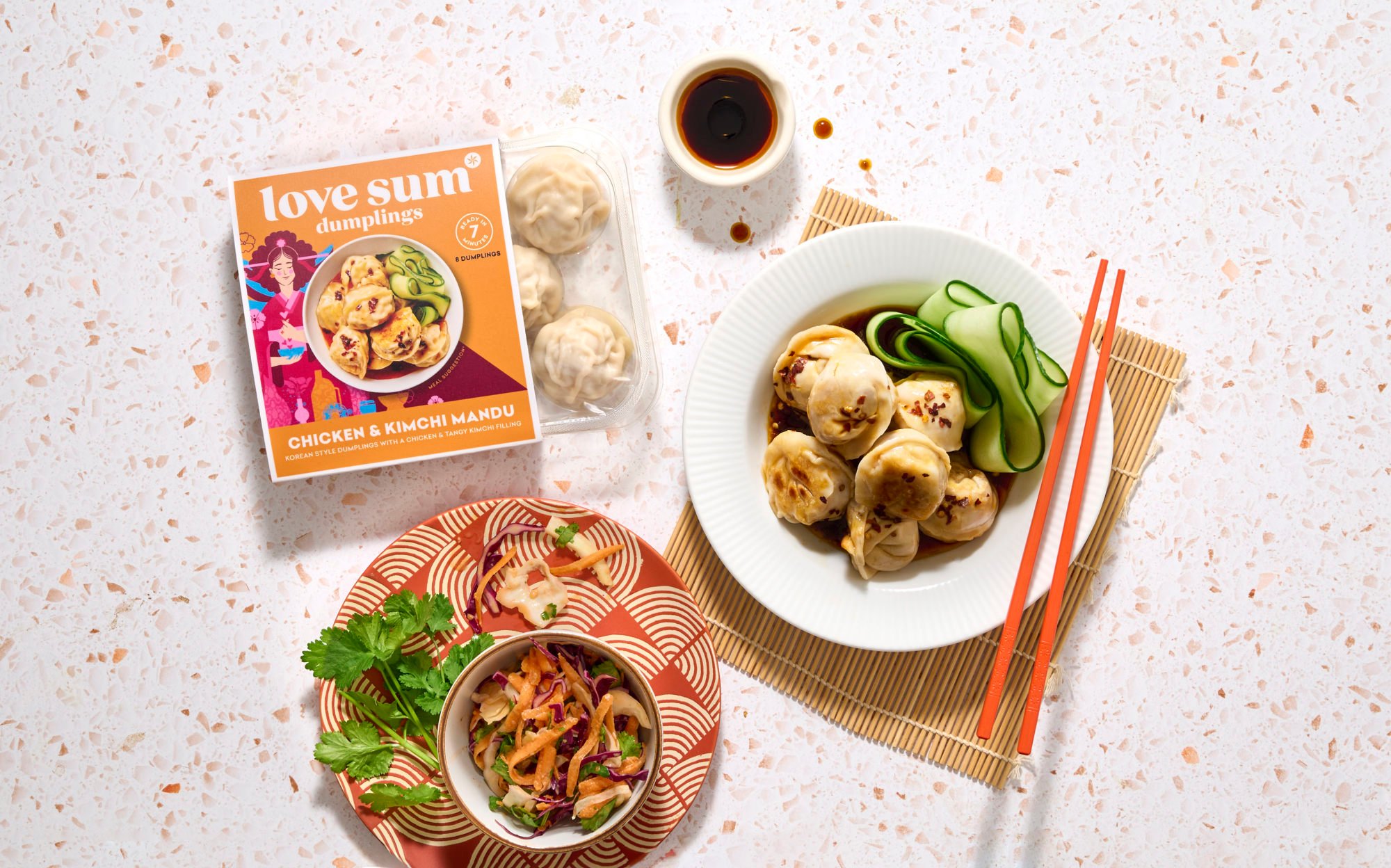
When they started out, Tang admits they did not know any suppliers, let alone anything about the food industry – she had been a technology consultant before entering MasterChef. But her engineering knowledge comes in handy with food production, with machines ensuring the dumplings are made consistently and chilled, not frozen.
“We made a very conscious choice that we want to sell in the chilled aisle, and [chilled products] look nicer,” says Tang.
“I love frozen food and especially frozen vegetables. I think they are a great way to preserve nutrients and also reduce food waste. But consumers have a perception that frozen food is more like a plan B, whereas chilled food is more where they would go for tonight’s dinner.”
Because its products are chilled, however, Love Sum Dumplings’ products have a relatively short shelf life, which means passing particularly high food hygiene standards. Having machines make the dumplings means fewer human hands in the production process.
Creating a legacy: cookbook immortalises Asian food businesses in New York
Creating a legacy: cookbook immortalises Asian food businesses in New York
Love Sum Dumplings has six dumpling flavours. Tang is looking into producing a hoisin duck dumpling seasoned with five spice, spring onions and sweetness that may have nostalgic appeal to overseas Chinese.
“I can see the category for dumplings is growing quite a lot. I see Asian companies spending a lot on marketing in the UK. I always love to see food from different parts of the world coming into London,” she says.
Tang is also considering creating a line of sauces or broths because many British consumers associate dumplings with broths.
Dicky’s Dumps, Vancouver
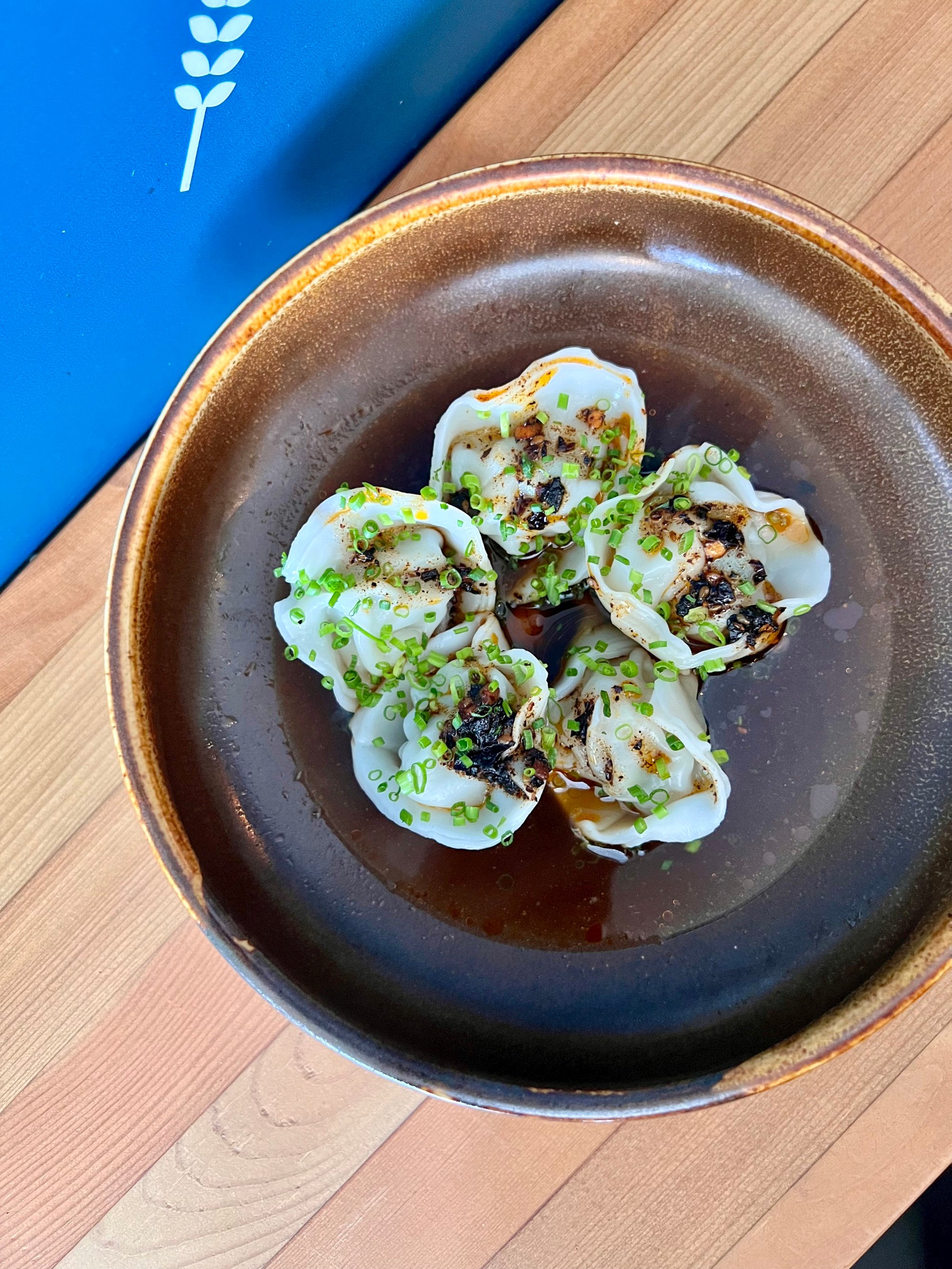
In 2018, Pearl Lam was organising her second “Get Lucky Art Show”, a community-oriented art exhibition in Vancouver’s Chinatown, and asked her husband, Dickson Li, to host a dumpling bar at the venue.
Anticipating a few hundred people would show up, the couple spent three weekends wrapping some 1,200 dumplings, borrowing freezer space from friends and family.
“But even with that amount of dumplings we sold out in 90 minutes,” recalls Lam.
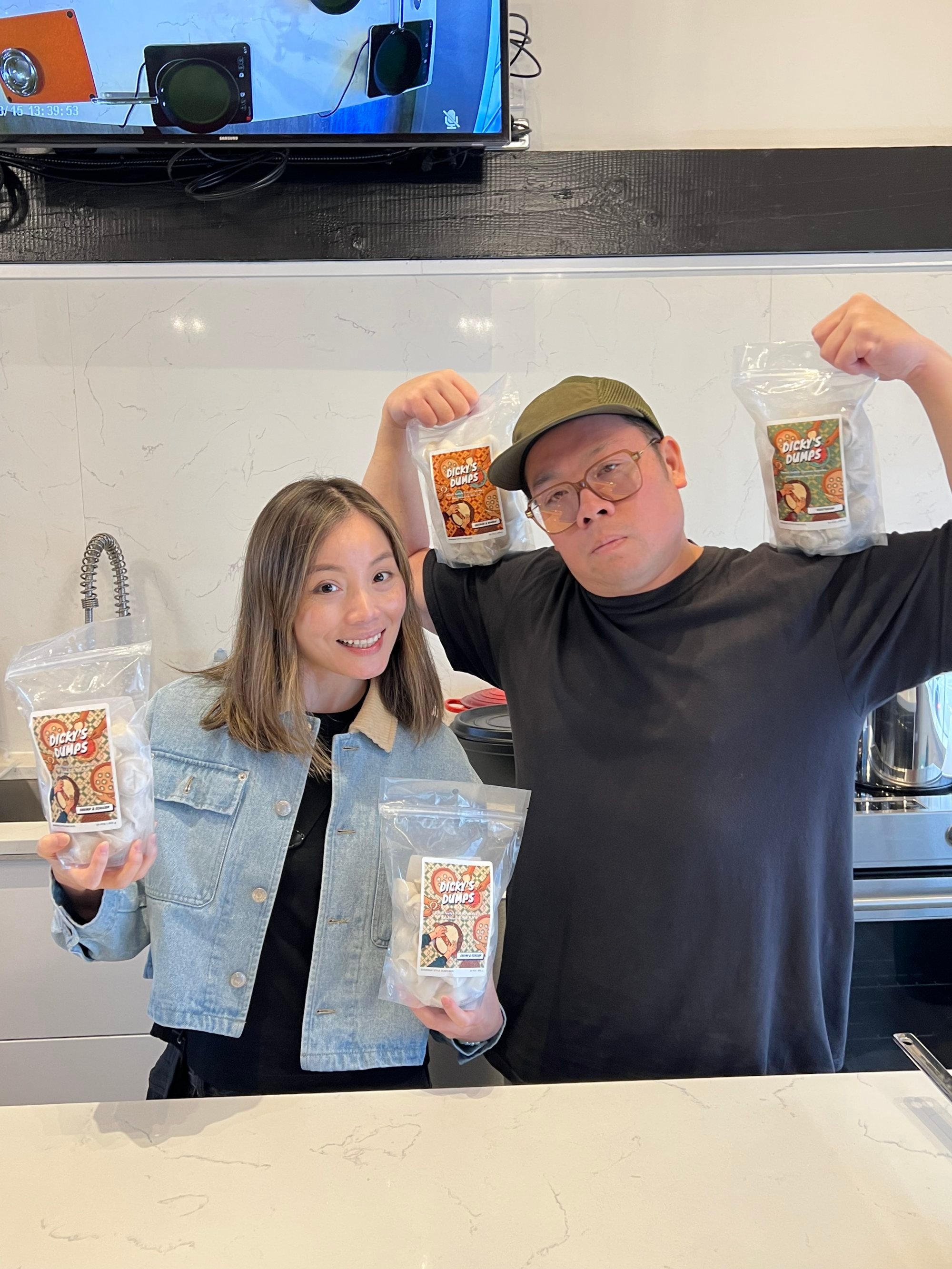
While Li describes himself as “the food guy”, doing the occasional private catering gig, his day job is in sales for action-sports streetwear.
He credits growing up with his maternal grandmother in Fa Yuen Street, in Hong Kong’s Mong Kok neighbourhood, for introducing him to a wide variety of foods, including steamed frog legs over rice.
Our craft is in the storytelling and engaging with our community
When Li was eight years old, his family immigrated to Canada, and that’s when his mother taught him how to fry eggs and cook instant noodles.
Lam was also born in Hong Kong and her family immigrated to Vancouver when she was three years old. Before the pair met, in 2016, Lam, whose background is in communications and marketing, hosted a dumpling-making workshop at a coffee shop in Chinatown.
When their dumplings took off, they started taking orders on Google Forms through Instagram, madly making dumplings at home and stuffing them into zip-lock bags that Li would then deliver.
A little bit of Hong Kong in Canada: the origin story of Ho Yuen Cafe
A little bit of Hong Kong in Canada: the origin story of Ho Yuen Cafe
“It got to the point where I was so sick of making them,” admits Li.
And so they outsourced production to a company that hand-makes the dumplings, then freezes and packages them.
“Our craft is not the dumpling itself, even though we produce a very good dumpling, I must say, but our craft is in the storytelling and engaging with our community,” says Lam.
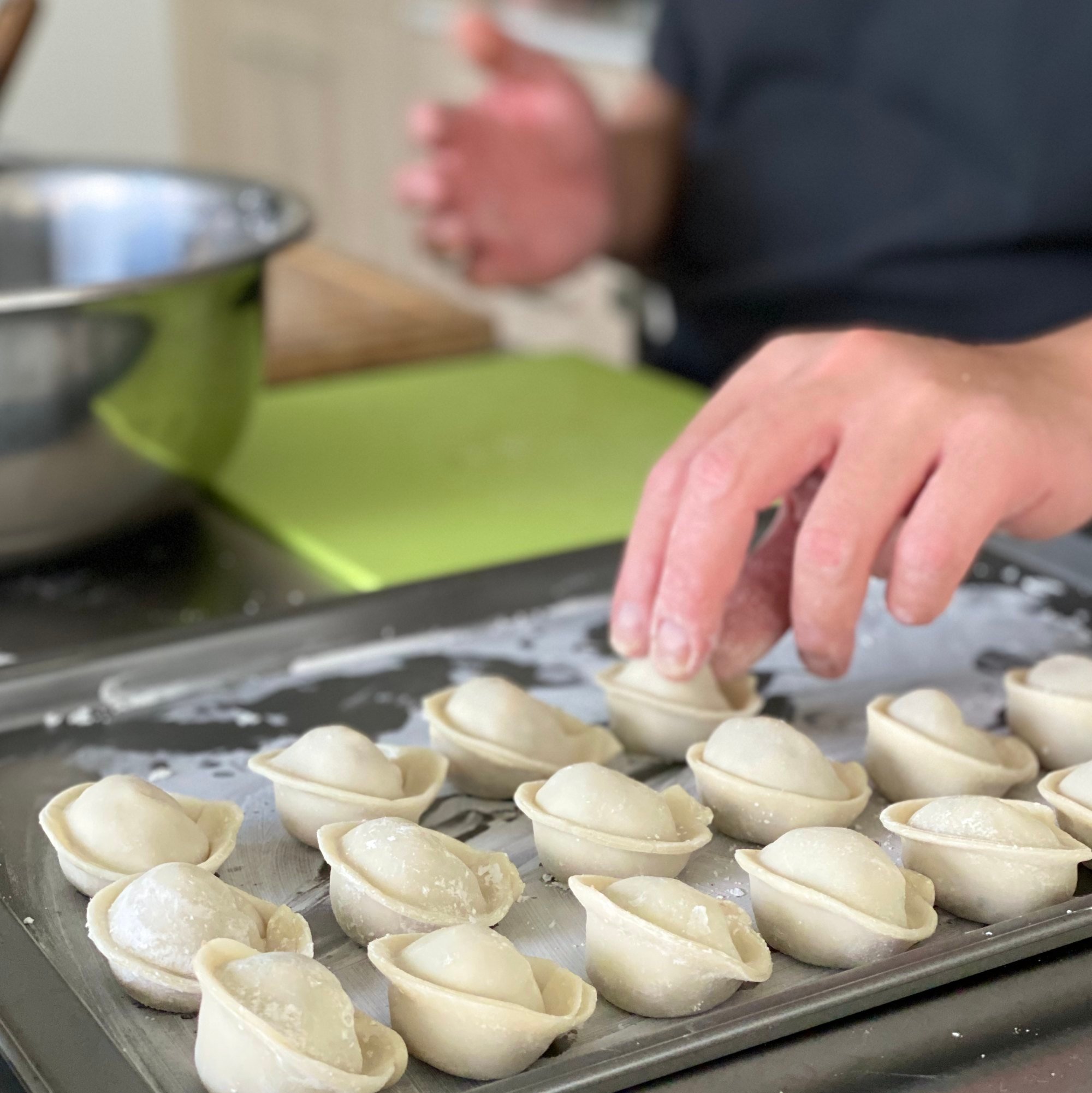
The name Dicky’s Dumps started as an inside joke.
“My friends call me Dicky,” says Li. “We go for dumplings all the time with co-workers and friends. So we’re always like, ‘going for dumps’ because it’s short and that’s the way we talk, very casual.”
“It’s easy and funny. Kids love saying it,” Lam adds with a laugh.

Dicky’s Dumps offers four fillings: the traditional Cantonese pork and chives, shrimp and scallop with coriander for pescatarians, vegetarian, and chicken and ginger.
Lam likens the shrimp and scallop version to a scallop dumpling or har gow. “I don’t like it when it’s minced too finely into a paste because that’s a completely different bite,” she says.
In Li’s version, these dumplings contain roughly chopped shrimp and a whole scallop – high-quality ingredients that are reflected in the price relative to other Chinese dumplings.
Trained at Michelin-star restaurants, he turned to ‘fun’ Chinese food
Trained at Michelin-star restaurants, he turned to ‘fun’ Chinese food
The vegetarian dumpling is the most labour-intensive, as it includes two types of mushroom, mung bean noodles, tofu and chives that are seasoned, wok-fried, cooled then squeezed to get rid of the moisture before being wrapped.
Finally, the chicken and ginger dumpling was inspired by a gai bao jai, or steamed chicken bun. Li’s version contains only dark chicken meat, with ginger and spring onion.
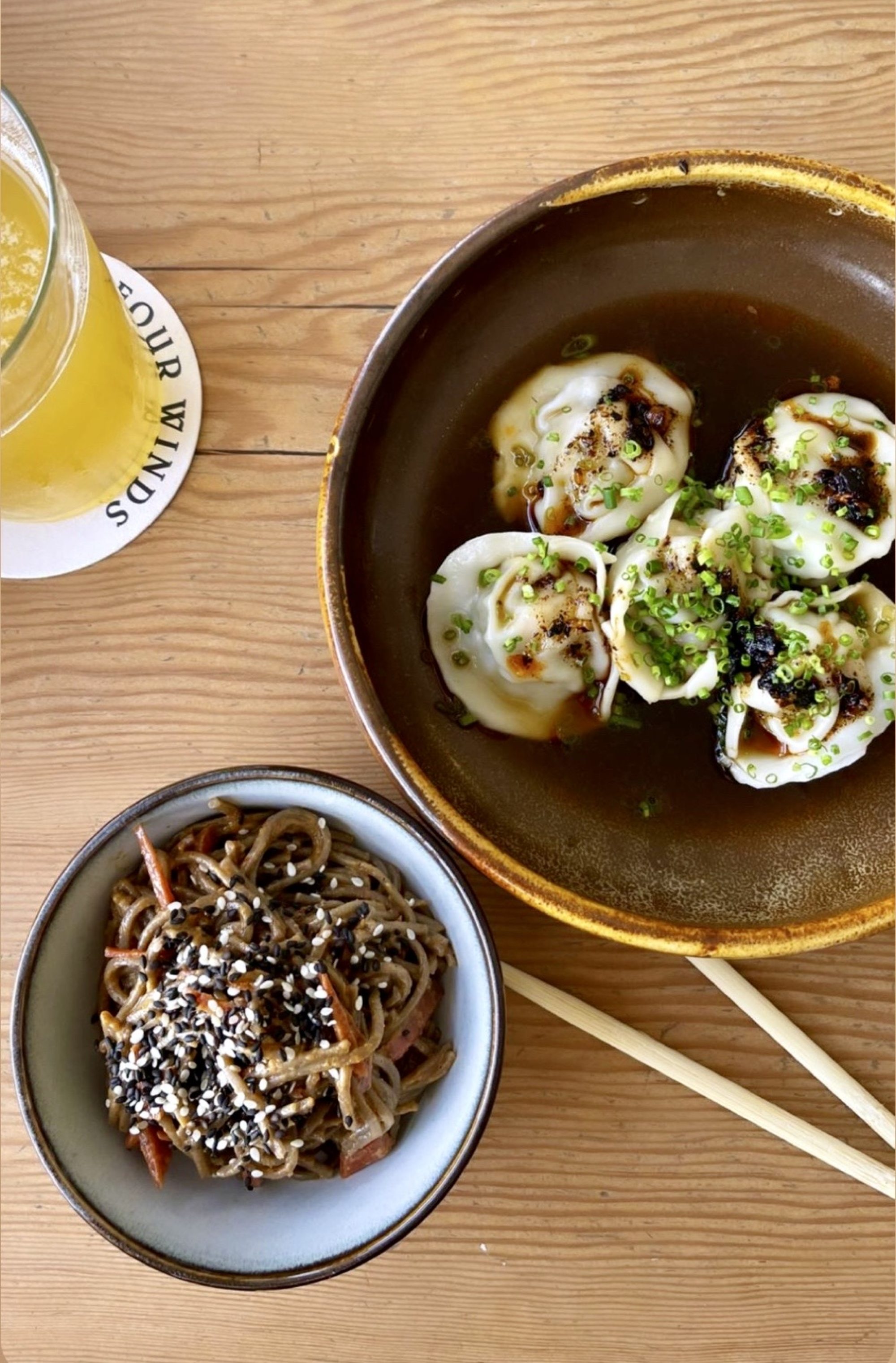
“We basically spent the back half of 2019 focusing on my healing because I was very, very broken. My face was still broken, my teeth were still jagged, not fixed yet and I couldn’t go anywhere because during lockdown, doctors weren’t seeing anyone, I couldn’t go to physio,” explains Lam.
With the city pretty much shut down, the couple focused on building Dicky’s Dumps’ business. She took the orders from Instagram while Li delivered the dumplings.
Around this time a company called Legends Haul, which supplied mostly meat products to restaurants, shifted its business model. It began partnering with its restaurant clients to create meal kits to deliver directly to consumers. One of the co-owners reached out to Li.
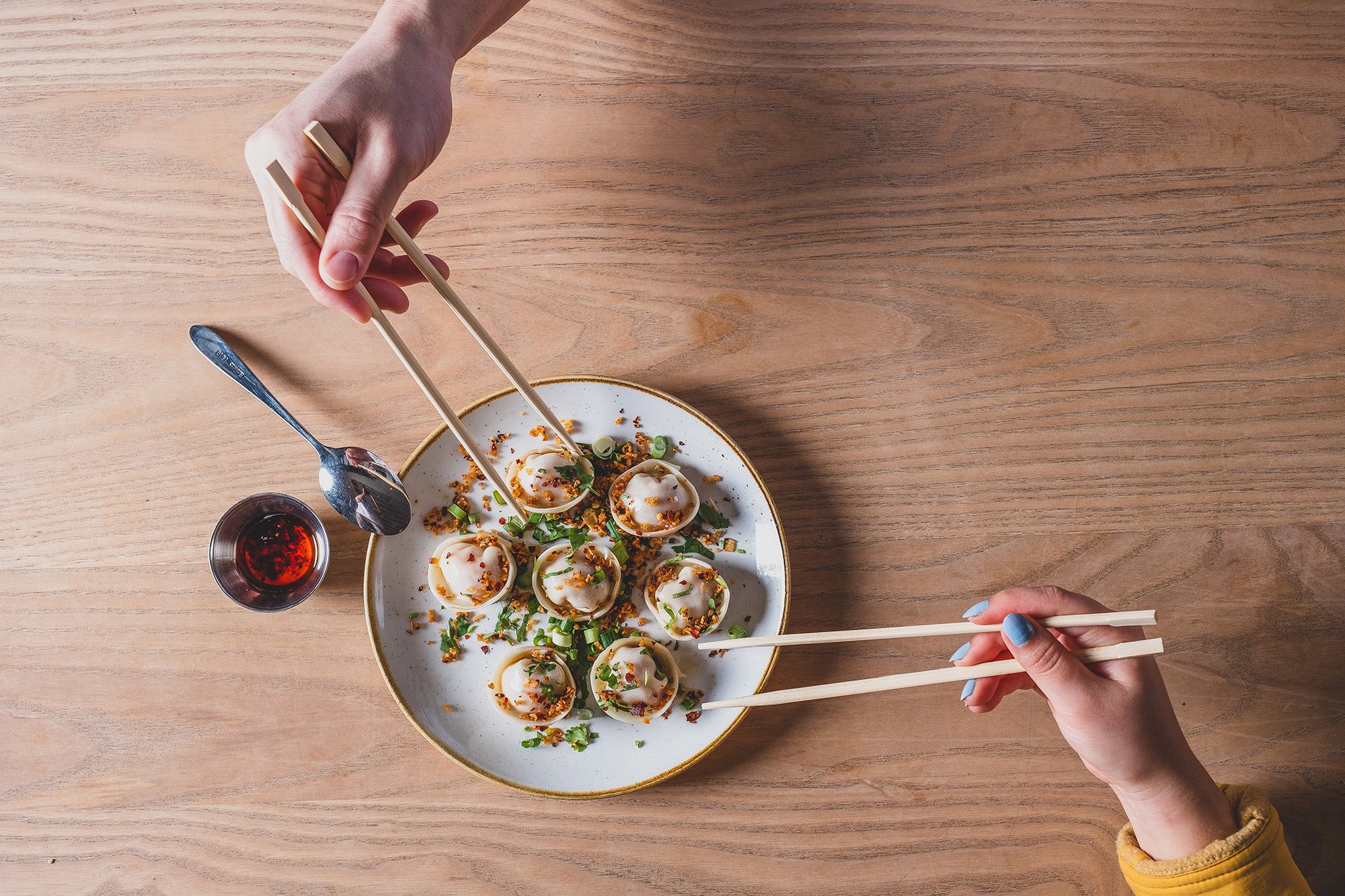
“That definitely helped us reach new customers,” says Li. “My reach, personally, is only so far, whereas these guys, they have a whole network. So that really helped us get our name out there in Greater Vancouver and as far north as the Sunshine Coast [70km, or 40 miles, north of Vancouver].”
In 2021, Dicky’s Dumps began partnering with friends in the restaurant industry, creating new flavours, or giving the chefs dumplings to put their own creative spin on them.
At Vancouver’s Sing Sing Beer Bar they created a pork, shrimp and vegetable dumpling that was supposed to be for a two-week promotion. It was the top-selling appetiser and is now on the menu permanently.
“It’s nice how all throughout our years of growing up here, because we’ve been in Vancouver so long, our friends have all branched out to do different things, but somehow, food and culture, we all somehow can come back together through this little dumpling business,” says Lam.
MìLà, Seattle
When Jen Liao and Caleb Wang were in a bicoastal relationship for four years (she in New York, he in San Francisco, and then they switched places), their first foray into the food business was opening a Chinese street food restaurant called Xiao Chi Jie, in Bellevue, near Seattle, in 2018.
In 2021, as their soup dumpling business began to grow, they relocated to Seattle to be closer to the factory that made the xiaolongbao.
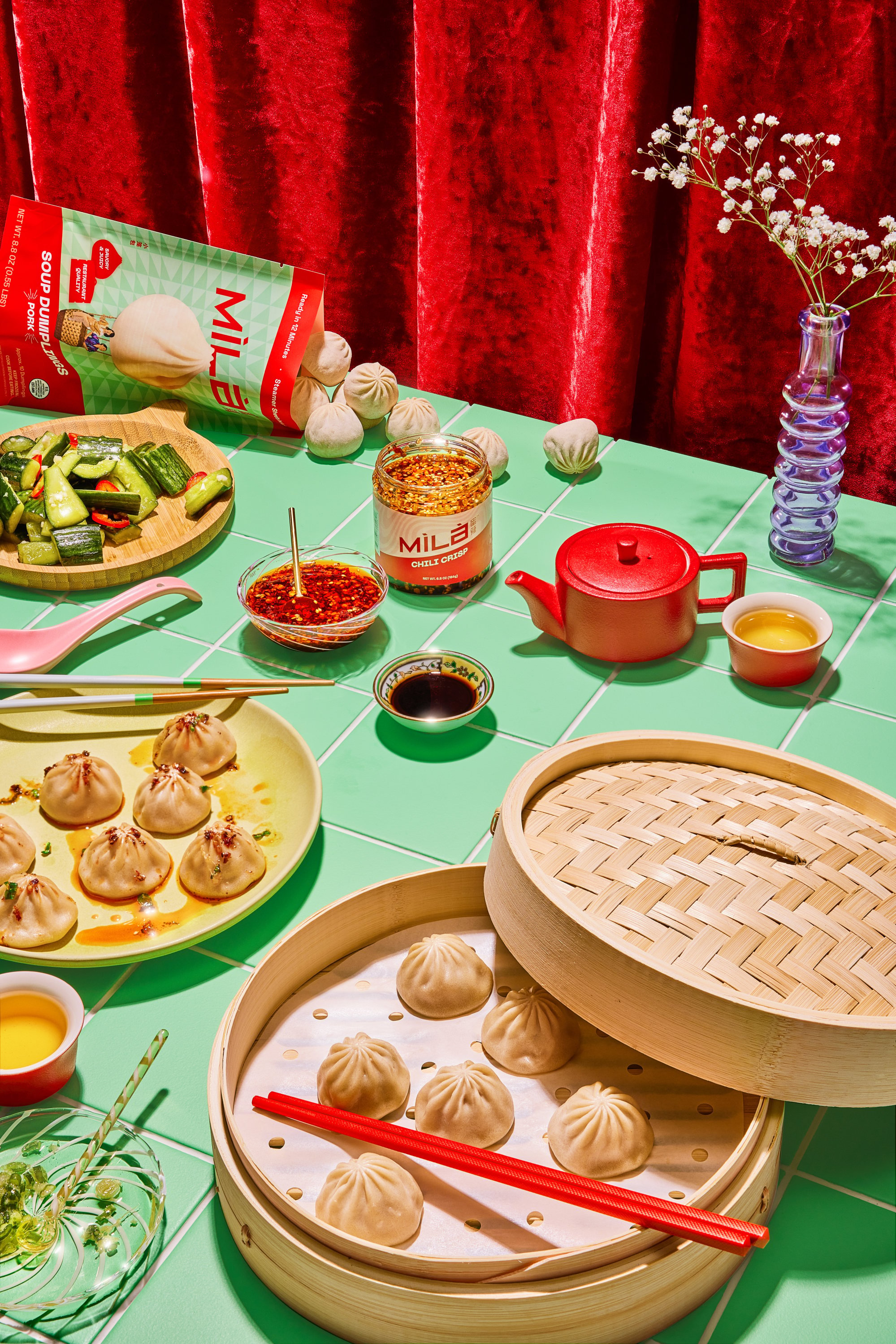
“For us, it felt like there were a lot of other types of dumpling available but there weren’t any frozen soup dumplings,” says Liao.
They came up with their own soup dumplings and named them MìLà, with mì meaning sweet in Chinese and là spicy.
“If we were going to have a daughter, we were going to name her Mìlà. We liked the idea that she could be sweet and spicy, sweet or spicy, something in between or nothing at all. And we ended up having a son. So we gave the name to the company,” says Liao.
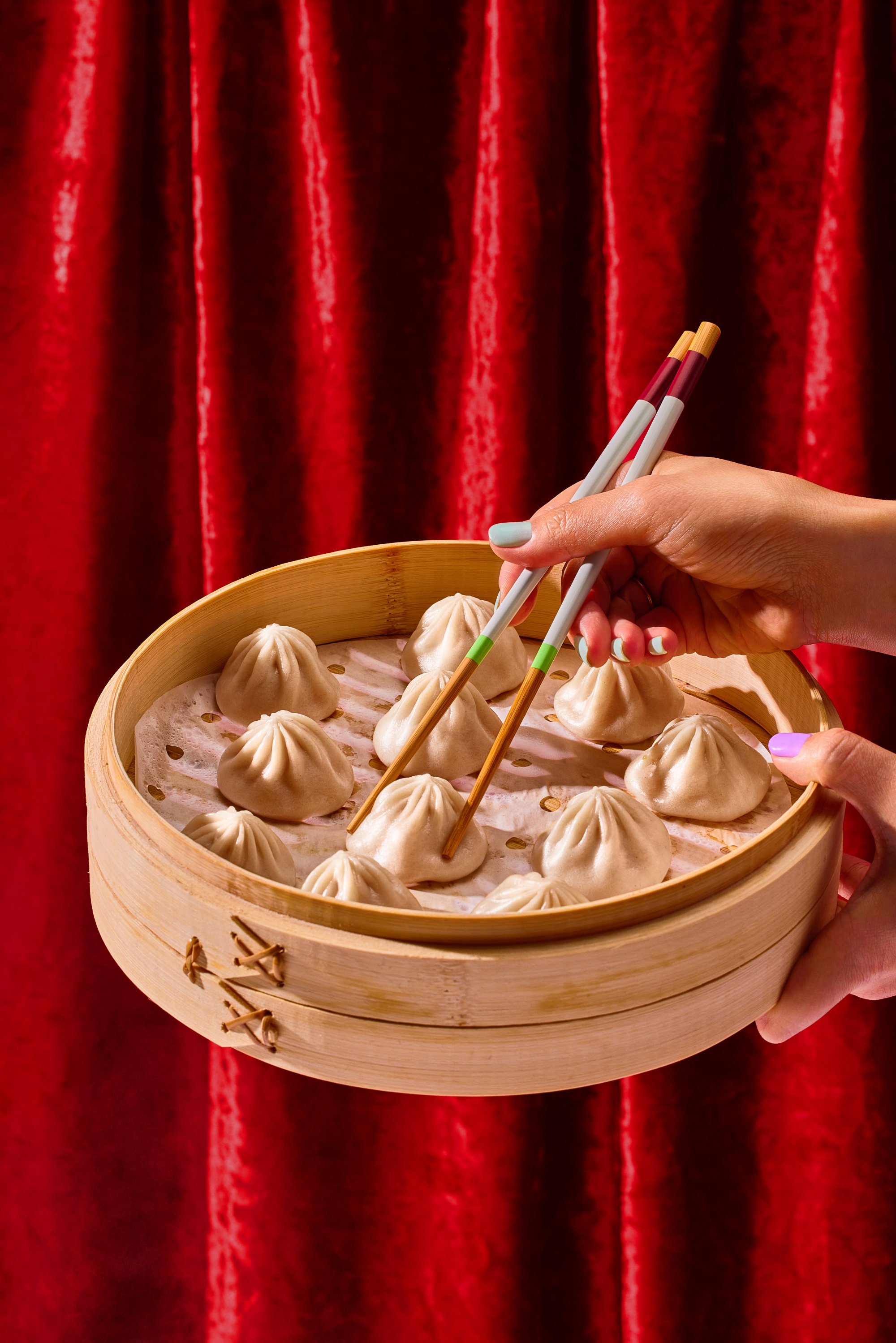
“Obviously, it has Chinese characters and meaning and it is also an English word. And that’s who we are – we’re Chinese-American and it embodies both sides of that.”
MìLà also developed chicken soup dumplings, pork and shrimp soup dumplings and a line of noodles including dan dan noodles, zhajiangmian and scallion oil noodles, as well as sauces, including dark vinegar, chilli crisp and ginger and scallion.
They also have limited-edition dumplings that are inspired by what they ate as children.
There hasn’t been an evolution of a lot of frozen Chinese food and so there’s an opportunity to reset that
“That one was really interesting, because it was exactly what you would expect if you grew up in Hong Kong,” says Liao. “But so many people from many different cultures have had chicken corn soup in some format, like corn chowder soup. And so they’re like, ‘Oh, this is really nostalgic,’ and it evokes childhood memories even though the flavour is a bit different.”
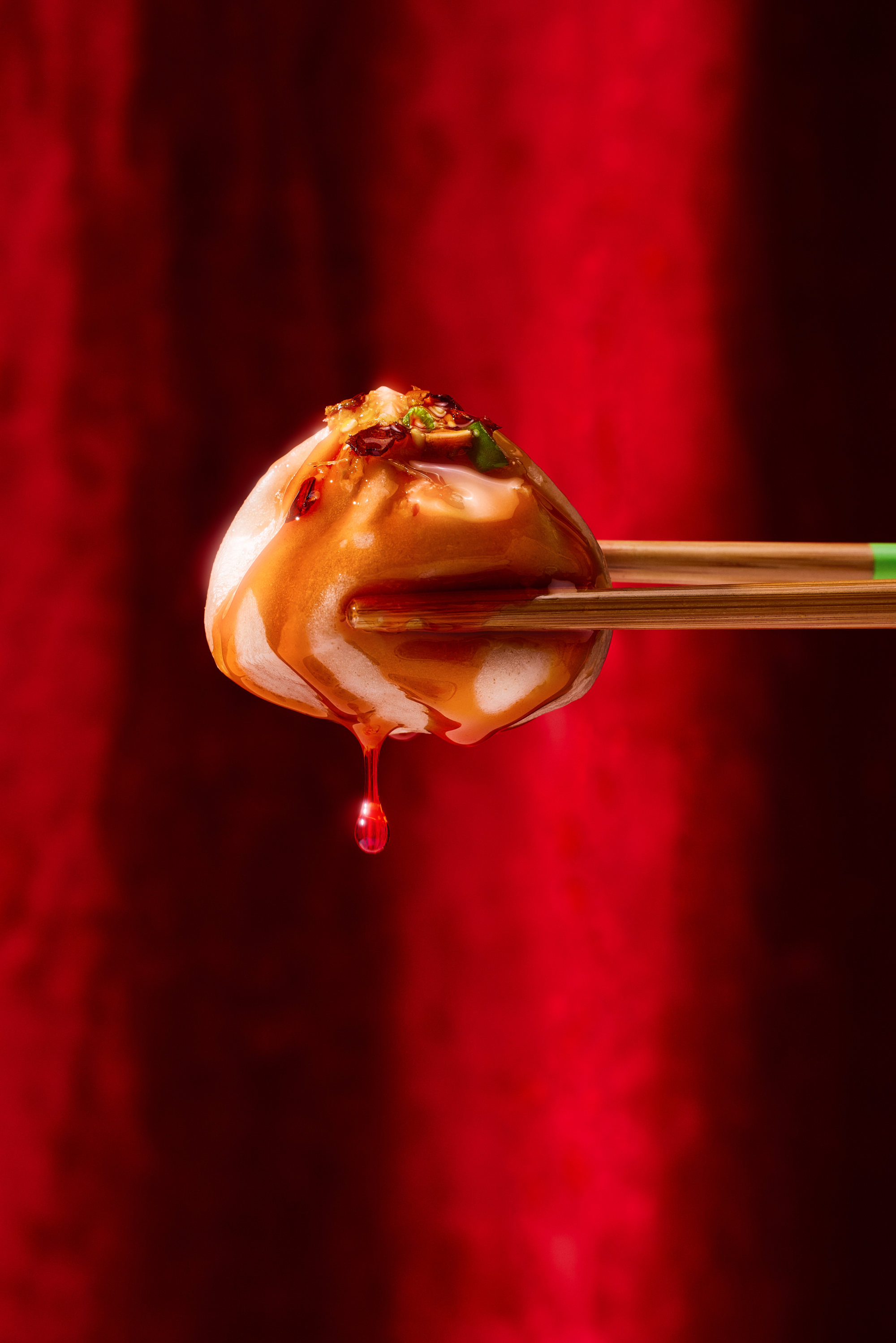
Liao says 20 per cent of their customers are Asian, reflecting the United States census, with most of them based on the west and east coasts and in Texas.
MìLà further expanded its customer base when it was carried at select locations of retail store Costco last July. Liao says they sold five times the volume Costco had anticipated.
The couple are now looking into producing dumplings for non-Chinese consumers who may not have an Asian grocery nearby.
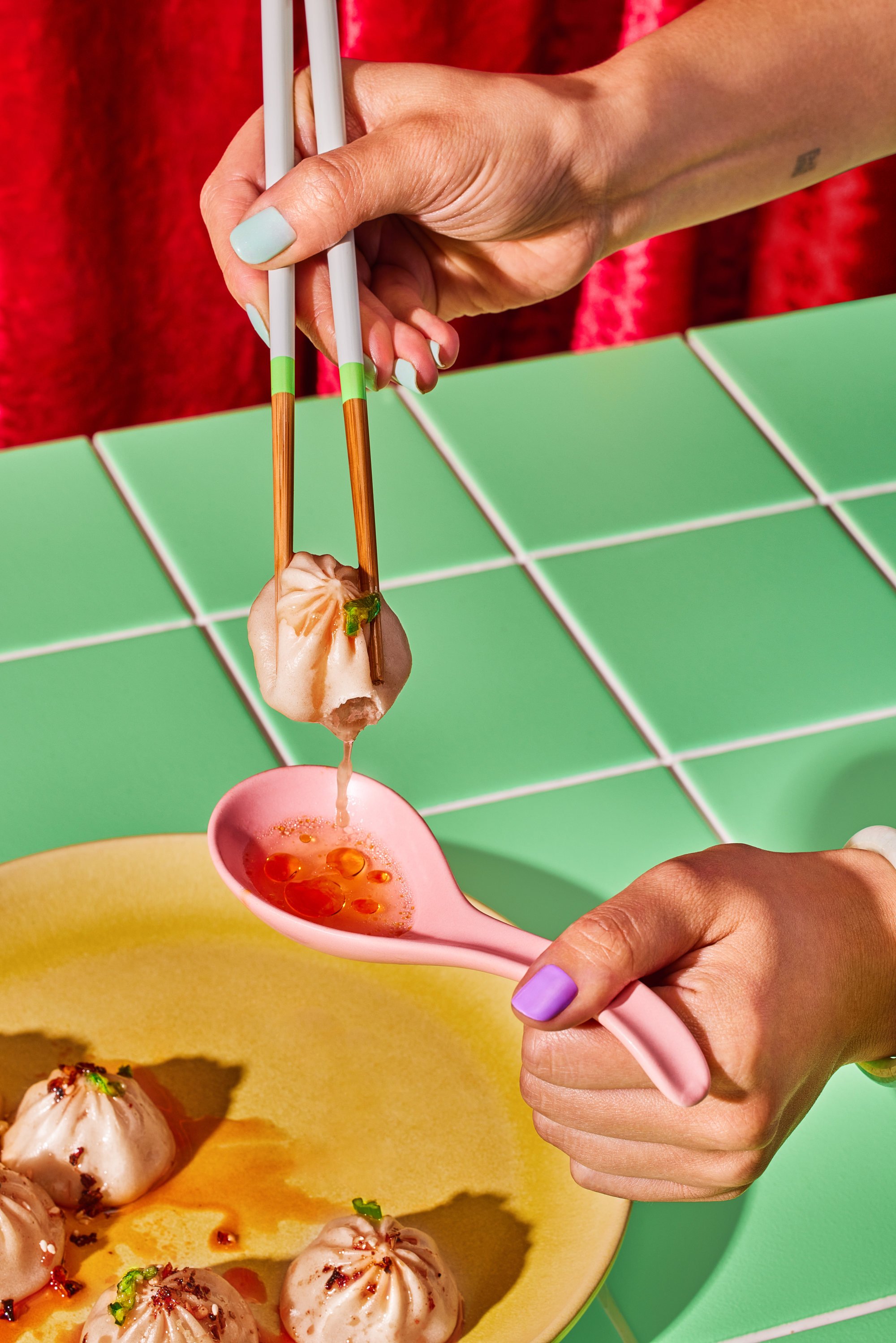
“Some of the grocery stores have dumplings. But it’s been done in a way where whatever was created 30 years ago is still what we have now,” says Liao. “It feels like there hasn’t been an evolution of a lot of frozen Chinese food and so there’s an opportunity to reset that.”
She adds that the modern branding of the dumplings makes them approachable for Americans, without compromising on the taste, which gets the approval of Chinese parents and grandparents.
Straddling cultures, MìLà appeals to a diverse customer base. It also helps having Hollywood star power on board.
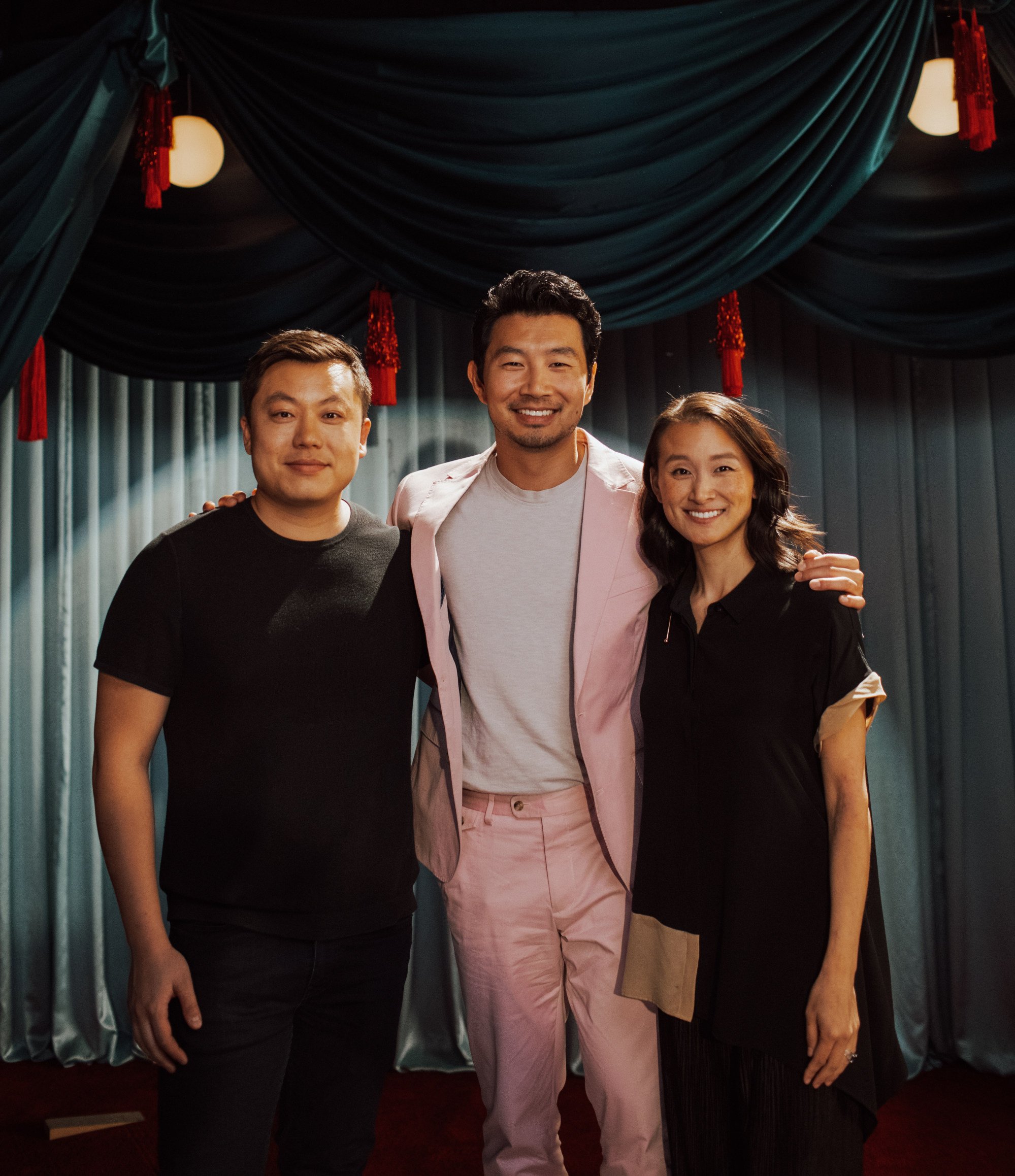
“They told him it was delicious. So he’s like, ‘OK, I’ll put in a small cheque,’” recounts Liao.
Liu told a longer version of the story to talk show host Jimmy Kimmel last October. It involves his parents accidentally ingesting some hallucinogens, which is why they ate all the dumplings.
“Not bad, nephew Ken doll,” he quips after a bite.

